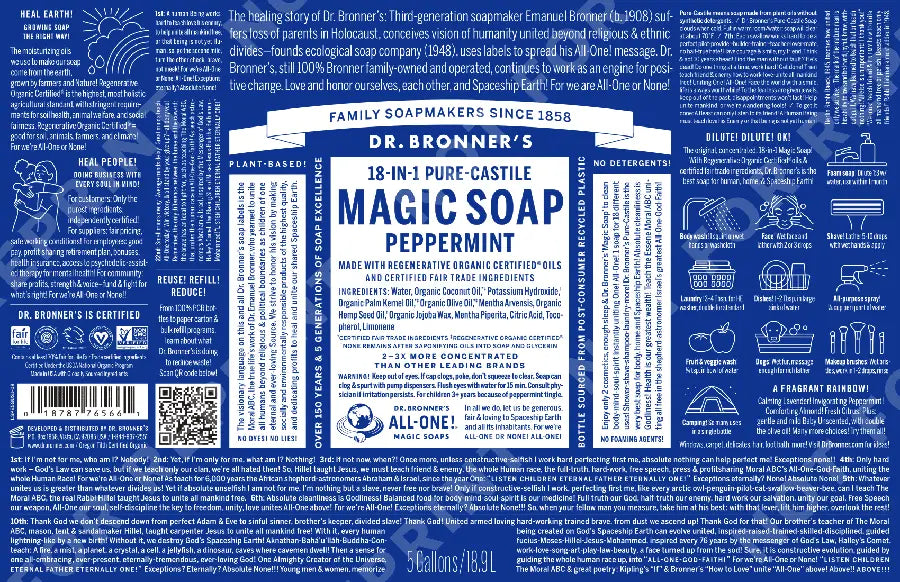Simplifying Your Skincare Routine: The Essentials That Actually Work

Skincare Doesn’t Have to Be Complicated
With so many skincare products out there, it’s easy to feel overwhelmed and often, the more complicated a routine becomes, the harder it is to stick with.
At The Living Co., we believe skincare should be simple, consistent and backed by real science. That’s why we asked our co-owner Natalie, a qualified dermal therapist and research scientist to help us strip things back to the essentials. Her philosophy? Focus on what works. Skip the fluff. And always wear sunscreen.
If you're ready to simplify your skincare routine, support your skin barrier and feel good in your skin, this is where to start.
Step One: Prioritise Sunscreen, Always
If you only use one skincare product, let it be this: sunscreen.
Australia has some of the highest UV levels in the world, which is why we also have one of the highest rates of skin cancer globally. In fact, long-term UV exposure is the leading cause of premature skin ageing, including wrinkles, fine lines, pigmentation and loss of elasticity. Research even shows that Australian women can appear up to 10 years older than their European counterparts due to chronic sun exposure.
How does sunscreen work?
Sunscreen protects your skin by forming a barrier that absorbs or reflects UV rays before they can cause damage to your skin cells. Broad-spectrum sunscreens protect against both UVA (ageing) and UVB (burning) rays.
When to apply sunscreen: Always apply sunscreen as the last step in your morning routine—after your moisturiser or serum.
How much to use: Most adults need about ½ teaspoon for the face and neck, and 1 teaspoon per limb. Reapply every 2 hours when outdoors or after swimming or sweating.
Looking for something natural and non-toxic? Browse our Natural Sunscreen Collection.
Your Easy Morning Routine (3–4 Steps Max)
Here’s a realistic, science-backed morning skincare routine to protect your skin and keep it healthy long term:
- Cleanse: A gentle cleanser removes overnight sweat, oil and bacteria. Choose a product that doesn’t strip or irritate.
- Apply Serum or Moisturiser: This step hydrates the skin and strengthens your barrier. You can use a Vitamin C serum here (more on that below), or simply stick to a nourishing moisturiser.
- Wait a Few Minutes: Let your product absorb fully, about 5 minutes is ideal.
- Finish with Sunscreen: Apply a broad-spectrum SPF30+ or higher. This step is non-negotiable, even on cloudy days or when working near windows.
Night Routine: The Power of Retinol (Vitamin A)
Vitamin A, often listed as retinol, is one of the most well-researched ingredients in skincare and for good reason. It's known to:
- Boost collagen production
- Improve skin texture
- Fade pigmentation and sun spots
- Reduce the appearance of fine lines and wrinkles
Retinol is best used at night and beginners should start by applying it every second evening to minimise irritation. Some redness, dryness or flaking in the first few weeks is completely normal as your skin adjusts. These side effects usually ease within 2–4 weeks.
Avoid using retinol with other strong actives like exfoliating acids or Vitamin C.
Explore our Natural Skin Care Collection for skin-friendly moisturisers and balms.
Moisturiser: The Unsung Hero
A good moisturiser doesn’t need to cost a fortune or contain gold flakes. What matters is how it functions:
- Attracting and retaining water in the skin
- Creating a barrier to prevent water loss.
By sealing in moisture, a good moisturiser helps prevent trans-epidermal water loss, reduces inflammation and supports a healthy barrier, which in turn helps protect against bacteria, pollution and irritation.
Apply moisturiser morning and night, after cleansing and before sunscreen.
Also, don’t forget internal hydration. Drinking enough water is essential for plump, healthy skin.
Explore our Natural Skin Care Collection for skin-friendly moisturisers and balms.
Optional Booster: Vitamin C
If you feel confident in your current routine and want to take it a step further, Vitamin C is a great morning addition.
This potent antioxidant helps to:
- Defend skin against UV and free radical damage
- Boost brightness and even out skin tone
- Stimulate collagen
- Fade pigmentation and sunspots over time
Apply Vitamin C in the morning, after cleansing and before moisturiser or sunscreen. Avoid using it on the same night as retinol to reduce irritation.
Final Thoughts from Natalie: Confidence Through Consistency
You don’t need 10 steps or a bathroom shelf full of bottles to have healthy skin. You need just a few well-chosen products, used consistently and aligned with your skin’s natural rhythm.
As a dermal therapist, research scientist and proud co-owner of The Living Co., I created this guide to help cut through the noise and support your skin in a way that’s evidence-based, gentle and easy to stick with.
At The Living Co., we believe in toxin-free, low-waste living and that includes what you put on your body. Our collection of natural, effective skincare is designed to work in harmony with your skin and your values.
Explore our natural sunscreen and skincare essentials and take the guesswork out of glowing skin.
– Natalie
Co-owner, Dermal Therapist & Research Scientist
FAQs: Simple Skincare Essentials
Do I really need to wear sunscreen every day?
Yes—UV rays are present even on cloudy or cool days. Daily sunscreen is your best defence against ageing, sun damage and skin cancer.
What’s the best order to apply my skincare products?
Morning: Cleanser → Serum/Moisturiser → Sunscreen.
Evening: Cleanser → Retinol
Can I use Vitamin C and retinol together?
It’s best to separate them: use Vitamin C in the morning and retinol at night to avoid irritation.
Why is my skin reacting to retinol?
It’s common to experience mild redness, flaking or dryness in the first few weeks. Start slow (every second night) and be patient, results come with consistency.
How do I know if my moisturiser is working?
Your skin should feel hydrated, soft and not tight after cleansing. A good moisturiser strengthens your barrier, reduces irritation and supports all other steps in your routine.



Comments